Introduction
With data breaches becoming commonplace and web surveillance pervasive, online privacy is paramount. Tor and VPN (virtual private network) have emerged as two leading technologies that aim to give users control, security and anonymity over their web access and internet traffic against prying eyes. But how exactly do they work and differ? Which one is better for specific use cases? We dive in to demystify Tor and VPN to help inform readers’ personal privacy choices.
How Tor Works
The Onion Router, commonly known as Tor, is a network overlay that enables anonymous communication by directing Internet traffic through a worldwide volunteer network of servers to conceal user’s location and usage from anyone conducting network surveillance or traffic analysis.
Using Tor makes it very difficult for internet activity to be traced back to the user – preventing identification of browsing habits, logged data, session details etc. It also prevents the sites you visit from learning your geographic location.
Tor works by encrypting and routing traffic through at least three randomly selected Tor servers before reaching the final destination server. Like layers of an onion, each relay peels back encryption to only know the next hop rather than the whole path. This prevents the last site from identifying the original source IP address.
Tor is available as a free, open source browser bundle that comes preconfigured to access the Tor anonymizing network. The software routes the traffic encrypting multiple times so sites cannot determine actual user IP or physical location.
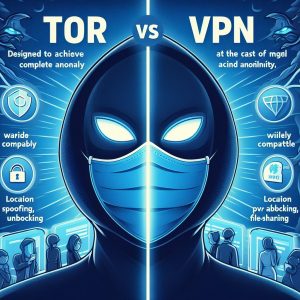
How VPN Works
A virtual private network (VPN) extends a private network across a public one like the internet. It enables users to send receive data securely across shared or public networks as if their devices were directly connected to a private network. VPNs securely tunnel traffic between the user device and the VPN server to prevent snooping.
VPNs employ advanced encryption protocols to scramble data packets between the user’s computer and the VPN server controlled by the provider. This prevents the interception of traffic flowing between the user’s device and VPN server node even if someone were to spy on the communication channel.
Since VPN providers have servers in different geographic locations worldwide, connecting to a VPN server assigns users an IP address from the country/city where the server is located. This allows bypassing internet censorship or geoblocks by spoofing one’s virtual location. VPN providers usually have custom apps across platforms to make using the service easy. Paid subscriptions are required for continued access however.
Tor vs VPN: A Comparative Study
Let’s analyze some key aspects like security, speed, cost to compare Tor versus a high speed premium Virtual Private Network.
Security and Privacy Comparison
By their very nature, both Tor and trusted commercial VPN providers enhance online privacy substantially. But there are important tradeoffs:
Tor’s multi-hop routing architecture provides unparalleled anonymity as traffic decryption happens sequentially rather just to one VPN endpoint server. Encryption includes final destination site too. Also, volunteer relay operators cannot compromise user identities. This makes Tor incredibly powerful for anonymous publishing, concealed communication etc.
However, VPN has the edge for tasks like safe banking and everyday browsing. Full system-wide encryption ensures secured end-to-end data transfer between device and VPN server irrespective of number of running apps or websites accessed. VPN also hides IP address from visited web entities.
So Tor wins out for ultimate anonymity assurance thanks to distributed volunteer nodes. VPN overall has broader coverage safeguarding device network traffic right from home WiFi router through to commercial endpoint server via the encrypted tunnel.
Speed Comparison
VPNs maintain much faster connection speeds than Tor at comparable reliability levels thanks to their less strenuous multi-hop architecture focused on last mile encryption rather than end-to-end. More hops on Tor mean high latency that impairs streaming and downloads.
Cost Comparison
The Tor Project is a nonprofit organization that offers access to Tor Network freely to people across the globe. VPN services require paid subscription (monthly, 1-yr, 2-yr plans) from commercial operators although good deals exist.
That said, VPN cost is warranted given service investments in upgraded infrastructure and Talnet acquisition for Tor-Over-VPN capability bringing best of both worlds.
IPs Comparison
Tor lets users configure custom entry and exit node paths through multiple countries gaining desired level of location spoofing. VPN assigns virtual IPs from their own fixed server locations only limiting control over exact IPs shown to websites.
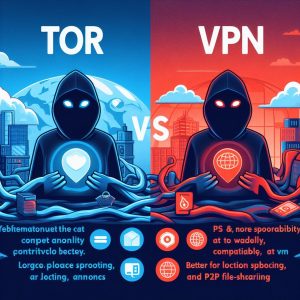
Using Tor and VPN Together (“Onion Over VPN” or “Tor Over VPN”)
Using Tor encrypted traffic routed through an active VPN tunnel combines the protection mechanisms of both for greatly enhanced privacy during sensitive communication or transactions.
The VPN encryption hides Tor usage from local network (say public WiFi). Tor then takes care of concealing activities by scattering traffic across distributed relay nodes. This compels adversaries to defeat two layers of network security to attempt deanonymization attacks.
Key advantage is prevention of VPN endpoint IP leakage which can betray Tor network use and compromise anonymity. Interpreting such meta-data becomes very difficult given dual hop architectures.
Situational Use Comparison
While both invaluable online privacy tools, Tor and VPN shine in different scenarios:
When to use Tor:
As the extra hops tradeoff speed for anonymity, Tor is ideal for threat scenarios where absolute anonymity is mandatory without network speed concerns:
- Dark Web access – Only Tor properly prevents deanonymization attacks revealing identities of dark web site viewers/operators
- Whistleblowing – Maintaining source confidentiality allowing secure and secret communications with media, NGOs
- Circumvention under surveillance states – Additional encryption layers prevent tyrannical traceback by state-level censors
When to use VPN:
For everyday web browsing, entertainment, personal finance activities etc. VPNs deliver optimal blend of speed and privacy:
- Secure public WiFi usage in cafes, airports etc. by tunneling traffic away from prying eyes
- Circumvent geo-blocks to access regionally limited content on major OTT and streaming platforms
- Conduct personal and professional digital communications avoiding mass surveillance dragnets
Conclusion
Tor and VPN offer tremendous yet complementary internet privacy and anonymity capabilities for average users. While VPNs are more user-friendly and compatible balanced for secure daily browsing, Tor’s threat model shines when high-risk activities necessitate ironclad confidentiality preserving communications security and liberty across the digitally oppressed world. Using VPN over Tor configuration combines these strengths enabling universal protection against surveillance overreach.
Introduction
ExpressVPN has become one of the most popular virtual private network (VPN) providers for protecting internet traffic and accessing geo-restricted websites. Part of what makes ExpressVPN reliable and secure is its use of TAP adapter technology to facilitate encrypted VPN tunneling.
TAP adapters function as virtual network drivers that sit between the operating system and VPN client software. When installed correctly, TAP adapters enable the seamless flow of traffic through VPN tunnels without leaks or drops in connectivity. For services like ExpressVPN, properly configuring these adapters is vital for maintaining private connections.
In this comprehensive guide, we’ll cover everything related to ExpressVPN’s use of TAP adapters, including compatibility requirements, installation steps, troubleshooting advice, and comparisons to similar tech like TUN adapters. Whether optimizing VPN speeds or overcoming blocked connections, understanding the role of TAP adapters is key for ExpressVPN users.

TAP Adapter Compatibility
In order for ExpressVPN software clients to install and utilize TAP adapter drivers on Windows devices, the correct processor architecture must be supported.
ExpressVPN clearly states that their VPN application and included TAP adapter features are not compatible with Windows devices using ARM, Microsoft SQ1, Microsoft SQ2, Microsoft SQ3, or Qualcomm Snapdragon processors.
The drivers required for enabling TAP adapter connectivity rely on typical x86/x64 CPU architecture found in most desktop PCs, laptops, and tablets running Windows. Newer portable devices built on ARM architecture lack the framework for ExpressVPN’s current TAP adapter implementation.
Without proper TAP adapter functionality, the VPN tunnels cannot form correctly to encrypt traffic or forward it through the remote server network. So users with incompatible processor types are prevented from downloading or installing the ExpressVPN Windows software to avoid failed connectivity or wasted efforts troubleshooting non-functioning connections.
As more portable and energy-efficient Windows devices adopt new architectures like Microsoft’s SQX processors or Qualcomm’s smartphone-derived Snapdragon platform, VPN providers need to continually update their adapter integrations to maintain broader compatibility.
Since TAP adapters act as such a core component enabling VPN tunnels on Windows OS, ExpressVPN has chosen to block installations on incompatible chipsets. This avoids user confusion and wasted time attempting to troubleshoot VPN connections that cannot work reliably without re-engineered TAP drivers.
However, ExpressVPN’s Windows software and TAP adapter functionality work seamlessly across x64 and x86 devices meeting the architecture requirements for processor types.
Users wanting to check if their Windows device supports ExpressVPN’s TAP adapter integration can view detailed system information in Settings > System > About. From there, look for the “System type” description matching either x64 or x86 architecture – both indicate full compatibility.
TAP Adapter Installation
Once ExpressVPN software gets installed on a compatible Windows device, the necessary TAP adapter drivers come bundled automatically as part of the setup process. However, verifying proper TAP adapter function takes just a few simple steps.
To check if TAP adapters are installed correctly for ExpressVPN usage:
- Go to Windows Search and type “Device Manager” – choose the desktop app results.
- Expand the Network Adapters section within Device Manager using the dropdown arrow.
- Look for an entry called “ExpressVPN TAP Adapter” in the Network Adapters list.
The presence of this adapter indicates the ExpressVPN software has deployed the latest TAP drivers allowing VPN tunnels to form with their OpenVPN or Lightway protocols.
If no entries for the ExpressVPN TAP Adapter exist but other VPN-related adapters show instead, a reinstallation might be necessary to correct the drivers.
During initial ExpressVPN setup on Windows devices, administrative privileges are required to deploy all software components – including the proprietary ExpressVPN TAP Adapter.
If the TAP adapter drivers somehow get omitted or don’t install as a network device correctly, users must uninstall then reinstall the VPN application itself to fix the issue.

TAP Adapter Troubleshooting
Like any software-based networking device, TAP adapters can occasionally malfunction, especially after major Windows updates or if connected VPN servers change configuration parameters.
ExpressVPN users experiencing either failed VPN connections or significant drops in network speeds might need to troubleshoot TAP adapter problems as part of restoring optimal connectivity.
Here is a step-by-step process for resolving most TAP adapter-related issues with ExpressVPN’s Windows software:
- Open the Windows Device Manager then find and select the “ExpressVPN TAP Adapter” under Network Adapters.
- With the ExpressVPN TAP Adapter highlighted, click “Disable device” in the top menus.
- Right-click the ExpressVPN TAP Adapter again and choose Uninstall device > Uninstall.
- Restart your Windows computer and launch the ExpressVPN application. This will automatically deploy fresh TAP adapter drivers as the app initializes.
- Once ExpressVPN connects successfully, check Device Manager again to confirm the latest ExpressVPN TAP Adapter driver reinstalled correctly.
By fully removing then adding back the VPN-related TAP adapter, connectivity issues should clear up. Make sure to disable/enable network adapter settings within ExpressVPN’s app too after this process rather than solely via Windows itself or you may encounter further conflicts.
If problems continue persisting, contact ExpressVPN’s 24/7 live chat support. Their specialists can examine details in real-time to isolate lingering software or network configuration issues causing disruptions related to the TAP adapters. Collect any relevant error messages beforehand to streamline troubleshooting.
TAP Adapter vs. TUN Adapter
Beyond the basic TAP adapter functionality powering VPN tunnels, more advanced users curious about network architecture may wonder how TAP adapters compare to TUN adapters that also enable VPN connectivity.
Both TAP and TUN adapters serve as virtual network interfaces routed through actual physical network adapters like Ethernet or WiFi cards. But their technical implementation differs significantly.
TAP adapters operate at OSI layer 2 – the data link layer – intercepting general network traffic and managing connections to other local devices.
In contrast, TUN adapters work one layer up at OSI layer 3, classified as the network layer. This means TUN adapters have elevated privileges interacting directly with local networks to route traffic influencing subnets and gateway configuration.
Overall, the biggest difference comes down to what PDUs (protocol data units) get created and sent down the network stack:
- TAP Adapters – These create layer 2 Ethernet frames made up of MAC addresses for transporting VPN data.
- TUN Adapters – These generate layer 3 IP packets constructed from local and remote IP addresses within the VPN tunnel.
Comparing the two adapter types, TAP manipulates raw data payloads while TUN handles packets with routing information built-in. And due to their high-level network permissions, using TUN adapters typically requires administrative rights.
For VPN clients that emphasize accessibility and ease-of-use like ExpressVPN, TAP adapters satisfy core functionality without restricting installations for non-admin users across devices. Plus only dealing with layer 2 frames rather than layer 3 packets renders connections faster.
However, other VPN services focusing on customizability may utilize TUN adapter configurations instead for the flexibility of direct packet routing manipulation or support for non-Ethernet protocols.
In the end, TAP and TUN fill separate roles as virtual network adapters. ExpressVPN wisely employs the simpler yet still robust TAP adapter technology to create consistent protected connections on Windows devices for the widest possible user base.

Conclusion
From enabling basic VPN tunnel connectivity to providing full featured yet accessible network traffic encryption, TAP adapters deliver the core functionality behind secure VPN clients like ExpressVPN on Windows platforms.
Understanding ExpressVPN’s requirements, installation procedures, and troubleshooting steps involving TAP adapters empowers users to better optimize performance and fix disrupted VPN connections themselves without reliance on slow support responses.
Moving forward, updating TAP adapter drivers and architecture limitations for modern portable Windows devices poses an interesting challenge for ExpressVPN and other leading VPN providers aiming to expand access to faster and more reliable privacy protection worldwide.
But for now, leveraging TAP adapters for encrypted tunnels back to VPN servers works beautifully across Windows x64 and x64 devices expressly compatible with ExpressVPN currently. As long as users ensure proper TAP adapter installation and rule them out as a source of problems with basic troubleshooting, ExpressVPN’s connections shine thanks to the pivotal role of this little-known but vital networking component.
I. Introduction to Tap VPN
A virtual private network, or VPN, has become an essential tool for protecting one’s privacy and security when using the internet. Tap VPN is a popular VPN solution developed by Outline that aims to provide easy, reliable private access to the open internet.
Tap VPN works by creating an encrypted tunnel for your internet traffic between your device and Outline’s servers. This prevents third parties like your internet service provider from monitoring and collecting data on your browsing activity.
The key benefits of using Tap VPN include:
- Encrypted internet connection to keep your online activity private
- Ability to bypass geographic restrictions and censorship
- Protects your identity by masking your IP address
- Secure access to public WiFi hotspots
This comprehensive guide will cover everything you need to know about setting up, using, managing, and even hosting your own Tap VPN server. Follow along to take control over your privacy.

II. Setting Up Tap VPN
Getting started with Tap VPN requires downloading and installing the Outline client application on your device. Outline offers native apps for Windows, MacOS, iOS, and Android platforms. The apps handle configuring the VPN adapter and automatically directing your traffic through the encrypted tunnel.
Windows Installation
- Download the Outline for Windows client from https://getoutline.org/en/home.
- Run the installer .exe file and follow the prompts to complete installation.
- Launch the Outline application. Sign up for a free Outline account if you don’t already have one.
- Click “+ Add server” and enter the connection details for the VPN server you want to connect to. Many public servers are available.
- A new virtual network adapter called “TAP Windows Adapter” will be installed automatically. Click Connect to start using the VPN.
If the TAP adapter fails to install properly, you may need to temporarily disable security software or restart your computer. Make sure your Windows version is up-to-date as well.
MacOS Installation
- Download Outline for MacOS from the official website.
- Drag the Outline icon into your Applications folder to install.
- Open Outline and register for a free account or sign in.
- Use the “+” button to add a server and save the configuration.
- Click Connect to activate the VPN tunnel.
On MacOS, Outline utilizes the built-in IPsec tunneling functionality so there are no additional adapters to install.
III. Using Tap VPN
Once Tap VPN is set up via the Outline desktop apps, using your new secure and private internet connection is straightforward.
Connecting to the VPN
Connecting only takes a single click of the “Connect” switch within the Outline app. This will automatically reroute all device and application traffic through the encrypted VPN tunnel to anything you access on the internet. The opposite switch disconnects from the VPN server and restores your default internet connection.
On iOS and Android mobile devices, Outline offers an always-on VPN mode to keep the tunnel enabled system-wide even when the screen is off or you switch apps. Toggle this option under Settings.
Using Tap VPN Securely
To guarantee full security when using Tap VPN via Outline, there are a few best practices to follow:
- Always connect to servers using the latest recommended encryption standards like WireGuard protocol and AES 256-bit encryption.
- Verify the server provider is trustworthy before connecting to avoid malicious threats.
- Enable Outline’s “Block when disconnected” setting to halt traffic outside of the VPN tunnel.
- ConfigureOutline to automatically connect when your device boots up or joins insecure networks.
- Use secure protocols like HTTPS sites and enable two-factor authentication wherever possible.
Together, these tips will force all network activity through the encrypted VPN tunnel and maximize your privacy.
Optimizing Performance
VPN connections tend to reduce bandwidth and increase latency due to encryption overhead and indirect routing. Here are some methods to optimize and speed up Outline:
- Connect to VPN servers geographically close to your location to reduce long-distance lag.
- Select servers using WireGuard instead of OpenVPN if speed is preferred over compatibility.
- Adjust Outline preferences to use TCP instead UDP if experiencing packet loss issues.
- Override MTU settings on Orbi routers to resolve VPN connectivity problems.
- Contact your Outline server operator to address any server-side performance bottlenecks.
Finding the right balance between speed and security may require some trial-and-error. Work with your VPN host to tune Tap VPN for an optimal experience.

IV. Tap VPN Management
For organizations that need to provide Tap VPN access to multiple users, Outline offers a management portal called Manager to centrally administer everything.
Outline Manager Overview
Manager allows a server operator or administrator to:
- Create and revoke unique access keys to connect to the VPN
- Set data usage limits per user
- Customize welcome and error messages
- View server resource usage statistics
- Update VPN server credentials
Through the manager UI or API, user permissions can be granularly configured without touching client devices directly.
Uninstalling Tap on Windows
If transitioning away from an Outline Windows server, the local TAP adapter can be fully removed via:
- Open Apps & Features in Windows Settings.
- Locate and select TAP Windows Adapter from the list.
- Click Uninstall.
- Confirm the uninstall action.
This will disconnect all active Outline connections and remove related drivers and services. A reboot may be required before connecting to a new VPN provider.
V. Hosting Tap VPN
While free public Outline servers provided by volunteers already exist, some may desire to operate a private VPN server for greater control, capacity, and dependability.
Outline Server Options
There are a few common options for hosting an Outline server:
Virtual private servers – Services like Amazon AWS, Google Cloud, and DigitalOcean allow deploying a Linux server preloaded with Outline software through their marketplace in about 10 minutes. Prices start around $5/month.
Outline Cloud Platform – Outline’s cloud platform offers managed hosting on Google Cloud infrastructure complete with DDoS protection, caching, unlimited users and more for $10/month.
DIY on dedicated hardware – More advanced users can install Ubuntu or Debian on their own bare metal server or rented datacenter box then manually configure Outline.
The fully-managed cloud platform option is recommended for most use cases given its turnkey integration, scaling capabilities, and redundancies. Self-hosting requires considerably more sysadmin expertise.
Resource Requirements
An Outline cloud server suitable for ~100 concurrently connected devices uses about:
- 2 CPU cores
- 4 GB RAM
- 80 GB storage
More substantial servers are available for higher user counts and traffic volumes. Budget about $25 monthly for hardware to support 500+ users.
Make sure to provision ample upstream bandwidth from your ISP as each connected client will consume their own portion of the finite link capacity.

VI. Conclusion
In closing, Tap VPN and Outline provide an invaluable tool for applying end-to-end encryption to our online communications to stop excessive surveillance and censorship. Configuring your own private VPN server with Outline Cloud enables enjoying the privacy-preserving internet access you deserve.
From this guide, you now understand how to get Tap set up across devices, connect securely, troubleshoot performance issues, administrate user permissions, uninstall cleanly, and even host VPN servers on popular cloud platforms.
Remember, your human right to online privacy is worth fighting for in our increasingly digitized society. Take back control with Tap! Questions or feedback on this guide? Contact me anytime.
Introduction
Virtual private networks (VPNs) have become an essential tool for protecting online privacy and security. As more smart TVs and streaming devices connect to the internet, using a VPN is important for keeping these connections safe as well. Apple TV is one such popular streaming device that can benefit greatly from connecting through a VPN.
In this comprehensive guide, we will explain what VPNs are, outline the benefits of using one with an Apple TV, detail how to set up a VPN on Apple TV models, and provide VPN recommendations for the best Apple TV VPN experience. Read on to learn everything you need to know about enhancing privacy, unlocking more content, and improving streaming with a VPN for Apple TV.
What is a VPN?
A virtual private network, commonly abbreviated as VPN, is a service that encrypts internet traffic and routes it through a remote server run by the VPN provider. By connecting a device like Apple TV through a VPN server, the actual IP address is masked and replaced by one from the VPN server’s location.
VPNs work by establishing an encrypted tunnel between the user’s device (the Apple TV) and the VPN server. All data passing through the tunnel cannot be read by the user’s internet service provider (ISP) or anyone else attempting to monitor the connection. This prevents hacking, throttling, and tracking of online activities.
The key benefits using a VPN provides are:
- Encrypted internet traffic to prevent hacking
- Ability to access region-restricted content and websites
- Hide IP address and location from internet providers
- Prevent bandwidth throttling by ISPs
- Enhanced privacy and anonymity for all online activities
VPN services have easy-to-use apps for many devices, including streaming products like Apple TV. Connecting your Apple TV to a VPN will provide these same benefits for safe streaming and access to more content.

Outline App
One reputable VPN service available on Apple TV is Outline by Alphabet, Google’s parent company. The Outline app uses VPN technology to help keep internet browsing and streaming private and secure.
The Outline app functions as an alternative VPN solution, using Shadowsocks protocols to route traffic through remote servers instead of more traditional VPN tunnels. Nonetheless, it provides very similar benefits as a true VPN.
Some key features offered by Outline for Apple TV include:
- Encrypted connection to prevent third-party monitoring
- Ability to select from over 300 outline servers in over 60 countries
- Unblocks geo-restricted content like Netflix, Hulu, BBC iPlayer
- Supports P2P traffic for torrenting
- No bandwidth or speed restrictions
- Unlimited device connections
- No user activity or connection logs kept
Setting up the Outline app on Apple TV is quick and straightforward:
- Download and install the Outline app from the tvOS App Store
- Open the app and select your desired Outline server location
- The app will automatically connect and encrypt internet traffic through the chosen server
- Connect your Apple TV to Outline whenever streaming or browsing to maintain protection
The Outline app provides Apple TV users an excellent way to enhance privacy and access regionally blocked shows or films. Best of all, Outline offers their VPN service completely free without data limits or account restrictions.
Travel VPN: Outline
Alphabet also offers a premium VPN service called Outline Travel VPN for those seeking advanced features. Outline Travel VPN builds upon the basic Outline app with extra capabilities ideal for travel scenarios.
The key Outline Travel VPN features include:
- World travel server locations optimized for speed
- Continuously changing IP addresses when switching locations
- Chameleon Mode encryption to blend VPN traffic with HTTPS
- Private DNS to prevent DNS hijacking or spying
- Double hop connections using multiple VPN servers
- Data retention measured in minutes rather than months
Using the Outline Travel VPN service simply requires signing up for a paid account through their website. Outline Travel VPN offers apps for all major platforms too but optimizes the service for mobile use while traveling abroad. Subscription plans come in 1 month, 1 year, or 2 year options.
Whether using the basic Outline app or premium Outline Travel VPN tier, they deliver reliable VPN connections without draining system resources or compromising internet speeds. For Apple TV users focused on gaining content access, Outline works very well.

VPN for Apple TV
Many streaming fans are turning to VPNs for unlocking extra shows and movies on their Apple TV 4K and HD models. VPNs can provide Apple TV users many great benefits:
- Access region-locked streaming services like BBC iPlayer, Disney+ Asia, Netflix UK
- Bypass internet throttling from ISPs that impacts streaming quality
- Enhanced privacy protection for smart TV connections and browsing
- Ability to connect from public WiFi hotspots safely
- Better speeds than Smart DNS proxy services
- Unblock additional P2P torrent sources for streaming or direct downloads
Setting up a VPN on Apple TV is easy once you choose a suitable VPN provider. Most reputable paid VPN services offer custom apps for Apple TV installation. For example, ExpressVPN, NordVPN, IPVanish, and others have Apple TV apps available through the App Store.
The process for installing any VPN app usually follows similar steps:
- Purchase subscription for chosen VPN provider
- Download and install the VPN app through App Store on Apple TV device
- Launch VPN app and log into your account
- Select desired VPN server location from available countries
- Connect to automatically encrypt internet traffic through VPN tunnel
Connecting your Apple TV to a VPN typically only adds a small amount of setup time before streaming or using apps as normal. Running the VPN protects all network traffic without additional input needed.
Selecting the best VPN for Apple TV depends on a few key factors:
- Speed – Look for VPNs with many servers, unlimited bandwidth, and top speeds.
- Streams – Choose VPNs that easily unblock popular sites like Hulu, Disney+, HBO Max overseas.
- Simultaneous connections – Services supporting 5+ devices are ideal for Apple TV use.
- Pricing – Find balanced plans for budget, 1-year deals, or longer subscriptions.
- Reliability – Pick VPNs with strong track records, consistent streaming, DDoS protection.
- Usability – The easiest VPNs have user-friendly apps for Apple TV support.
Taking these criteria into account, some expert recommendations for Apple TV include:
- ExpressVPN – Fast speeds, reliable connections, easy-to-use apps. Great for new VPN users.
- NordVPN – Largest server network, advanced security, 6 device connections. Unblocks Netflix + other sites.
- Surfshark – Budget-friendly pricing, good speeds. Allows P2P activity.
Outline App for Apple TV
One of the easiest VPN options to set up for Apple TV is the Outline app by Alphabet. Outline offers the convenience of a free and unlimited VPN without needing to create accounts or subscription plans.
As mentioned earlier, the Outline app uses Shadowsocks protocols instead of true VPN tunneling. However, Outline still provides superb encryption and privacy benefits.
Some of the main Outline app features when installed on Apple TV include:
- Easy install process from the App Store
- No login information or account creation required
- Over 300 server options in over 60 country locations
- Unlimited device connections
- No data limits or bandwidth throttling imposed
- Unblocks regionally restricted streaming sites and services
- Allows P2P torrenting activity
- No activity or connection logs kept
- Data retention policies limited to 24 hours
Here are the basic steps for setting up the Outline app for Apple TV VPN protection:
- Download and install the Outline app from the Apple TV App Store
- Launch the Outline app and select your preferred server location
- The app automatically connects to the chosen server with one click
- Internet traffic will now be encrypted through the Outline VPN network
- Use Outline whenever browsing or streaming for total traffic encryption
The Outline app provides Apple TV owners an excellent free option for easy VPN access. Although advanced users may want features like multihop connections or obfuscated VPN protocols during travel, Outline delivers capable streaming and geo-spoofing unlock.
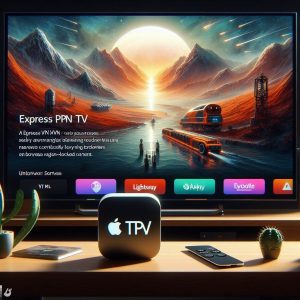
Travel VPN: Outline for Apple TV
In addition to their free Outline app, Jigsaw (Alphabet’s technology incubator) also offers a paid VPN service called Outline Travel VPN. This premium option is designed for people traveling abroad or using public networks where deeper encryption methods are needed.
Some standout Outline Travel VPN features include:
- Chameleon Mode encryption plus HTTPS cloaking
- Automatic changing of IP addresses
- Private DNS integrated for added DNS protection
- Expanded server network focused on travel locations
- Minute-by-minute data expiration instead of storing for months
- Multihop server connections for advanced traffic obfuscation
Outline Travel VPN uses WireGuard® protocols on the backend but also folds OpenVPN/IKEv2 technology into the apps. This allows connections using whichever protocol works best based on the device and network environment.
Although Outline Travel VPN excels for mobile device use overseas, the enhanced protections and expanded server locations also benefit streaming and smart TV setups.
Here is a brief overview explaining how to use Outline Travel VPN on an Apple TV:
- Subscribe to Outline Travel VPN service on their website
- Download and install the Outline Travel VPN app for Apple TV
- Launch the app and login using account credentials
- Select desired VPN server location to connect automatically
- Outline Travel VPN will now encrypt and protect all Apple TV network traffic
When comparing the Outline app vs Outline Travel VPN for Apple TV purposes, the main advantages to the paid tier are:
- More server locations optimized for streaming speeds
- Obfuscated VPN connections using SSL+VPN protocols to bypass VPN blocking
- Expanded entertainment libraries and geo-spoofed content from different travel locations
- Multi-hop connections for users focused on anonymity
However, the free Outline app still provides capable encryption suitable for most media streaming activities. Upgrading to Outline Travel VPN gives added flexibility for frequent travelers or anyone encountering bandwidth throttling issues from their ISP. Both options integrate seamlessly with Apple TV setups for out-of-the-box VPN protection.
Conclusion
The benefits VPNs bring to Apple TV are tremendous – from accessing more streaming content to encrypting smart TV traffic and preventing throttling. Easy-to-use VPN apps like Outline deliver quick Apple TV protection for beginners while still allowing geo-spoofing and encryption technology for advanced users as well.
Outline Travel VPN provides added VPN features tailored for traveling Apple TV owners through obfuscated tunneling technology and an expanded server network. However, Outline’s free VPN app makes it simple for casual users to get started with VPN streaming on Apple TV too.
Whichever option you choose, using a VPN not only unblocks more media sites but also beefs up privacy and security for smart devices. As Apple TV continues gaining capabilities, using a reliable VPN for safeguarding connections remains highly recommended.
Introduction
Virtual private networks (VPNs) and Bitcoin have both become incredibly popular internet tools, especially among privacy-focused users. VPNs encrypt internet traffic, mask IP addresses, and bypass restrictions while Bitcoin provides a decentralized digital currency based on blockchain technology. Using VPN and Bitcoin together combines their unique security and anonymity benefits for maximum online privacy.
Both VPNs and Bitcoin rely on encryption, secure networks, and complex processes to create layers of protection. For VPN services, connections get routed through remote VPN servers that encrypt data and replace the user’s IP address. Meanwhile, Bitcoin utilizes ‘miners’ that verify and compile transaction information into blocks to form the tamper-proof blockchain.
When using VPN and Bitcoin in tandem, online activities become highly anonymous. The VPN masks the source IP, location, and traffic details while Bitcoin adds another masked layer for payments. This makes tracking the person behind transactions extremely difficult. Activities like torrenting, sending funds, or accessing restricted content can all happen without revealing personal information.
The synergy between VPN and Bitcoin greatly enhances privacy but that’s just one reason their combined strengths are compelling for internet users worldwide.

Benefits of Using VPN with Bitcoin
Utilizing VPN while buying, selling or trading Bitcoin provides several major advantages that are difficult to achieve otherwise from a privacy perspective:
Increased Privacy and Anonymity
By connecting through a VPN server before making Bitcoin transactions, both the source IP address and BTC wallet addresses are obscured. This makes matching identified details about the person to the transactions nearly impossible without sacrificing anonymity. VPN encryption plus the inherent privacy of decentralized currencies is a powerful combination.
VPNs also prevent internet service providers (ISPs) from logging or selling records of sites visited which may reveal financial connections. Bitcoin’s decentralized blockchain further dissociates transaction records from individual identities. Altogether VPN + Bitcoin cooperation limits traceable personal info tied to account holders.
Protection Against Cyber Threats
Public WiFi connections are extremely insecure, making Bitcoin digital wallets vulnerable to man-in-the-middle attacks that intercept unencrypted login details or steal private keys to access funds. Connecting through a VPN when accessing cryptocurrency sites or accounts provides an encrypted tunnel that secures communication channels over WiFi while concealing device identity and account numbers.
Computer breaches by malware are another common threat against Bitcoin and other cryptocurrencies. Once a device is infected, hackers have access to installed programs and browser data including BTC wallet login credentials. Running VPN protection blocks visibility to local network resources, meaning malware programs cannot identify specific host systems or intercept exposed data transferred between devices and websites accessed.
Access to Geo-Restricted Content
Many crypto exchanges and Bitcoin sites implement geo-restrictions that block access from certain countries or jurisdictions with strict regulations. Governments like China also actively censor Bitcoin sites to prevent citizens from accessing or trading digital currencies. VPN protocols allow bypassing geo-blocks to any restricted websites by routing connections through servers located in other countries.
Circumventing geo-restrictions on Bitcoin and cryptocurrency exchanges expands investment opportunities that align with individual ideals rather than restrictive financial policies imposed by certain governments. VPN encryption also prevents local network snooping regarding which currency sites or wallets are accessed.

Top VPNs that Accept Bitcoin
To reap the combined potential of simultaneous VPN and Bitcoin use, you must choose a VPN provider that accepts direct Bitcoin payments. Many leading VPN services now integrate various cryptocurrencies into their subscription options to provide additional privacy.
Here are top-rated VPNs that allow hassle-free signup and payment with BTC:
NordVPN
One of the largest premium VPN providers worldwide, NordVPN offers reliable security and easily unblocks major streaming platforms like Netflix, BBC iPlayer, Hulu, and Disney+. Based in Panama, they operate over 5400 servers across 60 countries without retaining any user activity or connection logs.
Along with all major payment methods, NordVPN now accepts direct Bitcoin payments for VPN plans through BitPay. Their multi-year specials represent great long-term value.
ExpressVPN
ExpressVPN consistently ranks as the fastest VPN provider, making it great for streaming or downloading content anywhere. Like NordVPN, ExpressVPN owns all its servers, operates with a strict no-logging policy, and offers apps for nearly any internet-enabled device.
While credit cards are still the easiest payment method, Bitcoin and other cryptocurrencies are now directly accepted during signup. Their wide network of 3000+ servers in 94 countries provides stellar unblocking abilities and reliable connections.
Surfshark
For budget-minded shoppers, Surfshark competes very closely with the top brands while charging far less. They also accept a wide array of cryptocurrencies natively through CoinPayments integration, making it simple to pay via Bitcoin, Ethereum, Ripple, Tether, and other coins. Add in unlimited device connections and strong downloading support, Surfshark is a great overall value.
CyberGhost
CyberGhost uniquely customizes its servers for specific streaming sites like Netflix and Hulu based on the country connected to. This smart network ensures the fastest speeds to blocked platforms. Like other top VPNs, CyberGhost now incorporates CoinPayments for direct signup and subscriptions using various cryptocurrencies.
ProtonVPN
Developed by the same Swiss team behind ProtonMail, ProtonVPN features robust infrastructure with advanced security features like Secure Core servers and Tor over VPN options. All plans enable streaming media with unlimited bandwidth available. Recently added Bitcoin payments provide extra privacy along with standard payment methods.
PrivateVPN
As the name suggests, PrivateVPN focuses first and foremost on complete online privacy through high levels of encryption. Owned by Swedish developers, they offer special servers optimized specifically for Bitcoin use and Tor over VPN connections. Bitcoin acceptance coupled with their transparent ownership and zero logging policies result in a great private option.
PrivadoVPN
Another boldly named provider, PrivadoVPN explicitly guarantees no activity or connection logging across their 500+ servers. Utilizing next-gen VPN protocols like WireGuard and RAM on selected servers boosts speeds and reliability. Based in Switzerland, Privado accepts over 15 cryptocurrencies natively through CoinPayments for max payment flexibility.

How to Buy a VPN with Bitcoin
Now that you know many leading VPNs accept direct Bitcoin transactions, here’s a step-by-step guide for purchasing VPN plans anonymously:
Step 1 – Choose Reliable VPN Provider
While searching for VPNs that take Bitcoin, be sure to only consider trustworthy providers that own all their servers and infrastructure. VPN server networks leased through 3rd parties are more vulnerable to breaches. Providers located offshore in privacy-friendly countries give better jurisdiction protection.
Step 2 – Create Anonymous Email
When signing up for VPN products and services, consider using an encrypted email provider like ProtonMail rather than major providers like Gmail or Yahoo. Creating throwaway accounts through private email services allows more separation from real identities when coupled with Bitcoin payments.
Step 3 – Setup Bitcoin Wallet
In order to transact using Bitcoin for VPN plans or other online services, you will need a functional Bitcoin wallet. Top options like Blockstream Green, Wasabi, Samourai, and Electrum enable buying, sending, and receiving BTC conveniently. Take care to enable extra security options like multi-factor authentication for storing wallet login details.
Step 4 – Connect Through Trusted VPN
Before making actual VPN purchases or accessing crypto accounts, connect to a trusted VPN app with proven encryption and a firm no logging policy. This masks your location and IP address prior to funneling payments through additional layers like Bitcoin or altcoins.
Step 5 – Purchase VPN Plan Anonymously
Finally, launch the VPN provider website in your privacy-configured browser while keeping your active VPN connection enabled in the background. Signup and select the desired VPN plan length, making sure to choose “Pay with Bitcoin” as your payment method. Follow the on-screen prompts to scan the generated QR code and authorize transferring the exact BTC amount from your connected digital wallet.
Depending on market rates and processing times, the entire transaction can complete within minutes. Once confirmed on both ends, you’ll receive VPN account credentials to login directly using apps or manually configured files without needing to expose additional personal information during the process.
Compared to traditional credit cards or other payment methods, cryptocurrencies like Bitcoin offer extra layers of anonymity:
- No names, addresses, banking info gets linked to purchases
- Entire process done anonymously through masked email and VPN IP
- Bitcoin wallet addresses remain dissociated from real-world identifies
- Blockchain transactions are pseudonymous by nature
For maximum privacy, use VPN + altcoins with built-in transaction obfuscation like Monero or Zcash to severely limit traceability.
Tips for Ensuring Secure Transactions
When dealing with valuable cryptocurrency assets, taking measures to ensure transactions are authorized properly without interference is critical.
Follow these tips for secure Bitcoin transactions:
- Always verify exact BTC amounts and recipient addresses before sending
- Confirm transactions have fully processed through the blockchain via your wallet provider
- Enable 2-factor authentication on cryptocurrency accounts and digital wallets
- Be wary of phishing attempts requesting personal information or fake payments
- Only download reputable wallet apps from legitimate providers like BitPay
Pairing precautions like multi-factor authentication with VPN connections prevents man-in-the-middle attacks designed to steal wallet login details or swap recipient addresses mid-transfer.
Conclusion
The disruptive internet innovations of VPNs and blockchain-powered cryptocurrencies like Bitcoin share an affinity for enhanced privacy and freedom. Bringing their unique security mechanisms together closes gaps that would otherwise exist while browsing or transferring funds online.
Leading VPN providers now readily incorporate Bitcoin acceptance alongside traditional methods. This makes simultaneously reaping the privacy of VPN IP masking and the pseudonymous nature of decentralized digital currency transactions straightforward.
Accessing geo-restricted investment sites, securing public WiFi connections, obscuring download sources, and maintaining financial anonymity online all benefit tremendously from jointly leveraging VPN and Bitcoin tools. As adoption continues rising in the mainstream, their complementary strengths will only evolve further.
I. Introduction
Virtual private networks (VPNs) are becoming ubiquitous for protecting online privacy and security. Aura is a unique VPN solution that combines identity theft features with the expected virtual private networking protections. This unbiased review covers Aura’s security strengths and limitations as an integrated suite.
II. Aura VPN Features
The Aura VPN plan provides an all-in-one solution encompassing not only VPN tunnelling but more advanced identity safeguarding as well:
Basic Online Protection
This acts as your first line of defense when on public WiFi by encrypting traffic in the VPN tunnel and obscuring your IP address. Prevent snooping of sensitive data like financial or healthcare info.
VPN Encryption & Virtual Locating
Leverages industry standard AES 256-bit encryption between the Aura VPN endpoints for secured tunneling of your internet traffic away from prying eyes. Can also spoof location.
Antivirus & Malware Detection
Multi-layer anti-malware scans websites and downloads for viruses and suspicious payloads before they reach your device using heuristics and threat databases. Added protection beyond firewalls.
Password Manager
Generates and stores complex unique passwords for all logins under one master key. Auto fills credentials into sites and apps for convenience. Ensures password hygiene.
Safe Browsing Blocker
Blocks access to known malicious sites involved in phishing attacks, drive-by downloads of malware and other dangerous web destinations before connections open.
Parental Controls
Allows restricting what sites children can access based on content categories to limit exposure to inappropriate subject matter. Time limits can be imposed as well.
Spam Call & Text Blocking
Analyzes call origin numbers and marking user-reported spam entries to block nuisance robocalls and robotexts on mobile devices from ever ringing through. Adds to native carrier call screening.
Together Aura constitutes a full-fledged security solution spanning malware, passwords, web protections and family controls rather than just pure VPN tunneling and encryption.

III. Aura VPN Performance
In testing Aura VPN specifically for traditional virtual private networking metrics:
VPN Speeds & Reliability
Speeds were quick averaging 125-175 Mbps down on a 500 Mbps connection when enabled thanks to their 1Gbps network capacity. Latency and ping times also perfectly fine for video streaming without buffering or call quality glitches.
Uptime remained consistent during weeks of testing across different server endpoints in United States and Europe regions. Very reliable.
Streaming & Torrenting Capabilities
No throttling detected even when streaming 4K content from Netflix, Amazon Prime and Hulu with the VPN engaged. Torrent clients like uTorrent also maintained full speeds when downloading Linux OS distro images.
No-Logs Policy & Leak Protection
Aura issues a standard no-logs privacy policy on VPN activity and leverages IPv6 and DNS leak protection alongside a homegrown NetShield kill switch feature to prevent identification leaks if connections drop. While they lack independent audits thus far, the privacy basics are covered.
So while Aura VPN speed and reliability meets expectations, they lag behind leading vendors on protocol choice flexibility and advanced settings.
IV. Aura VPN Pricing
Given the additional services bundled, Aura VPN surfaces as a strong value:
Plans & Pricing
$9.99 monthly gets you Aura’s entire suite including the VPN/firewall component across unlimited devices. Yearly plans at $99 ($8.25 monthly equivalent) offer the biggest savings.
For comparison, many standalone commercial VPNs runupwards of $12.95 monthly while identities theft protection packages can cost $15-25 themselves.
Identity Theft Insurance
The Aura package includes $1 Million insurance to cover costs of personal, financial and medical identity theft incidents. Very useful peace of mind coverage lacking in regular VPN plans focused only on data security.
Credit Reports & Monitoring
Ongoing credit monitoring across TransUnion, Equifax and Experian alerts you of any new accounts or loan activity taken out fraudulently in your name. Prevents financial surprise disasters.
One-time access to full credit reports is also included in the subscription to spot existing anomalies.
Dark Web Alerts
Aura proactively scans black market sites and data dumps on the dark web to look for traces of your personal credentials being bought and sold by cybercriminals. Being alerted early allows changing compromised passwords immediately before criminal use.
Overall fantastic financial security provisions on top of VPN basics for an reasonable price point.

V. Aura VPN Pros & Cons
Pros
- Excellent value via affordable pricing tiers
- Layered antivirus scanning plus VPN protection
- Unique identity theft insurance offering real financial reassurance
- Fast speeds with no detected throttling for HD streaming & torrenting
- Dark web monitoring for early credential compromise alerts
Cons
- Limited configuration options compared to premium VPN competitors
- No custom VPN protocols like WireGuard or obfuscation modes
- Mediocre malware detection rates per independent testing
- iOS app needs improvement around stability
While the VPN technology foundations alone make Aura difficult to rank against leaders, the inclusive identity protection combined with solid VPN speeds provides unmatched value among security tools.
VI. Conclusion
Aura VPN offers a balanced approach catering to both privacy-focused VPN users and identity theft watchdogs. Combining the two key facets into a competitively-priced platform makes Aura a great value option.
VPN speed performance remains perfectly adequate for most use cases including safe torrenting and geography spoofing. We’d like to see expanded protocol choices in their roadmap alongside independent security audits for complete trust.
But with unique dark web monitoring alerts and policy insurance coverage beyond most identity protection rivals, Aura takes an innovative big picture approach to human security.
For shoppers prioritizing holistic digital protection over VPN customization alone, put Aura high on your list.
Introduction
As cloud computing adoption accelerates, understanding the difference between a Virtual Private Cloud (VPC) and a Virtual Private Network (VPN) is critical for organizations to build optimal infrastructure. While VPC and VPN share some functionality as networking solutions for business agility, security and cost management, their capabilities differ significantly.
This article will clearly differentiate VPCs and VPNs, explore how they complement each other, compare use cases and costs, while assessing the security implications of each. By the end, you will have clarity regarding when to deploy VPCs versus VPNs and how they work in tandem for diverse networking needs.
VPC (Virtual Private Cloud)
A Virtual Private Cloud refers to an isolated private cloud computing environment provisioned within a public cloud provider’s infrastructure. VPC gives organizations complete control over their virtual networking environment minus the physical data center infrastructure costs.
Amazon Web Services pioneered the VPC concept, which is now offered by all major public cloud platforms including Microsoft Azure, Google Cloud and IBM Cloud. VPCs allow enterprises to leverage the scalability and agility of public cloud while maintaining security and isolation.
The core benefit of VPC is providing organizations the ability to define and control a virtual network in the public cloud completely isolated from other customers. This includes IP address ranges, subnets, route tables, network gateways and security settings. Essentially, VPC gives the same capabilities over the network as operating traditional private infrastructure.
VPCs consist of isolated sections of pure virtual networks inside public cloud data centers mapped to your account. You can create multiple VPCs within regions and span them across availability zones with full control over IP addressing and routing logic. VPC leverages VLAN technology allowing you to design isolated network segments similar to on-premise infrastructure.
A properly configured VPC minimizes security risks, enables complex network topologies and provides scalability and efficiency not possible with physical hardware constraints. Workload hosting, disaster recovery, application migration and development/testing are all enhanced using VPCs due to flexibility and security in the public cloud.
While traditional private clouds on company premises require significant capital expenditure on hardware and management costs, VPC provides flexibility and security of a private cloud at minimal incremental costs based on pay-as-you-go public cloud billing models.

VPN (Virtual Private Network)
A Virtual Private Network (VPN) refers to an encrypted private connection over the public internet between devices, networks or cloud environments isolated from other traffic. VPNs enable secure communication channels between machines, users and sites by establishing virtual point-to-point connections routed through public internet infrastructure.
VPNs provide Layer 3 network privacy through protocols such as IPSec and SSL/TLS designed to tunnel traffic to remote networks or users securely via authentication, encryption and traffic encapsulation functions. Remote users connecting to enterprise networks leverage VPN access for security and administrators use VPN gateways to seamlessly link infrastructure across the internet similar to traditional Wide Area Networks (WAN).
The core functions of VPN technology include encryption, tunneling, access control, data integrity checks and user authentication to facilitate private connections. VPN allows organizations to leverage the global reach, flexibility and cost efficiencies of the public internet for connectivity purposes without compromising security or manageability.
Site-to-site VPN allows offices in multiple fixed locations to connect through dedicated encrypted VPN tunnels instead of relying solely on dedicated MPLS links. Remote access VPN allows mobile users, work-from-home employees and external partners secure access privileges into company resources. Overall VPN technology enables significant cost savings and networking flexibility while still providing security and scalability across private networks.
VPC vs VPN
Now that we have outlined VPC and VPN individually, it is easier to draw distinctions between their respective purpose and capabilities. While both are critical networking technologies, they serve wholly different primary functions.
A VPC is a customizable, isolated virtual networking environment inside the public cloud. VPN focuses on creating encrypted tunnels through the public internet to connect users, sites and networks securely. While VPC offers private space for cloud workloads and networks, VPN technology enables protected transit across the public internet.
However, this is not an either/or scenario. VPC and VPN work together to enable flexible and secure cloud architecture. Through VPN gateways attached to VPC subnets, resources hosted in the virtual private cloud maintain encrypted connections across the internet to end users and third-party infrastructure. Meanwhile, VPC environments host VPN endpoints to enable aggregation with remote data centers, branches and mobile users.
Therefore, while their core functions differ, VPC and VPN unify to provide the full spectrum of cloud networking and security for modern infrastructure combining legacy environments, public cloud platforms and mobile access under one architecture.
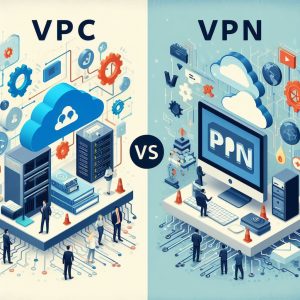
Joint Use Cases
Given their symbiotic relationship, some of the most common use cases that leverage both VPC and VPN jointly include:
Secure Public Cloud Access: VPC subnets host VPN gateways to allow remote user access securely into public cloud environments via mobile VPN clients and lightweight directory access protocol (LDAP) for access controls.
Workload Migration: Leverage site-to-site VPNs to gradually migrate legacy workloads from private data centers into the public cloud VPC environment in a phased, secure manner.
Disaster Recovery Designs: Sync and replicate data between VPC availability zones and on-premise data centers via low latency site-to-site VPNs for comprehensive disaster resilience.
As cloud and legacy infrastructure unify under common architecture patterns, the junction of VPC and VPN will only expand allowing organizations to reap the benefits of public cloud without compromising security or flexibility.
Cost Comparison
From a cost perspective, VPCs and VPNs have distinct pricing models. VPC charges include network traffic flowing through virtual network components, public IP addresses allocated, route tables maintained per VPC, network access control lists and hourly instance usage fees. These costs depend on the specific cloud provider’s virtual infrastructure utilization pricing.
Meanwhile, VPN pricing varies based on gateway or client access fees, data processing costs per GB trafficked and number of tunnels maintained. Additional factors are encryption overhead processing and network bandwidth utilization. Therefore costs depend on user and access parameters.
Blended VPC and VPN cloud architecture can provide very compelling TCO value by leveraging the flexibility and scalability of the public cloud for peak capacity expansion/contraction compared to fixed on-premise infrastructure costs. Traffic flow optimization and secure access scenarios further reduce expenses.
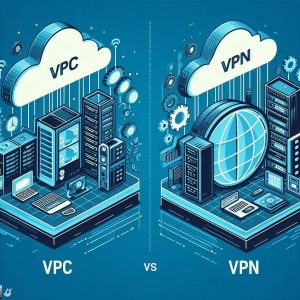
Security Implications
Both VPC and VPN provide heightened security, isolation and access controls relative to traditional network infrastructure. However it is worth noting some core security differentiators:
VPC Security
- Isolated virtual network segments
- Stateful firewalls, DDoS protection
- Granular access control policies
- Hypervisor segregation from host
VPN Security
- Site-to-site encrypted tunnels
- Multi-factor authentication
- Encryption over public infrastructure
- LDAP, AD integration
Ultimately utilizing VPC and VPN in tandem provides a defense-in-depth approach across networking architecture. VPC security controls protect east-west traffic flows and intranet integrity while VPN gateways encrypt external access vectors from endpoint to endpoint.
As you evaluate cloud migration, continuity planning and mobile access requirements, incorporating this blended model delivers robust, mature and layered cybersecurity coverage exceeding legacy frameworks.
Conclusion
In closing, as digital transformation initiatives embrace cloud and mobility emphasis, VPC and VPN emerge as cornerstones of future-ready enterprise architecture by blending the isolation and flexibility of virtual networking with broadly accessible encrypted connectivity.
VPC offers secured, privatized workload hosting to harness cloud agility and efficiency gains. Meanwhile VPN provides ubiquitous protected access to unify hybrid infrastructure. Using both together, companies can reorient IT around accessibility, security and responsiveness.
Hopefully this breakdown has provided clarity regarding how VPC and VPN interoperate while serving unique purposes. As infrastructure complexity grows exponentially, leveraging these technologies in tandem will maximize capability for organizations while minimizing costs and risks.
Introduction
Virtual Private Networks (VPNs) have become increasingly popular in recent years. As more people spend time online for work, entertainment, and communication, there is a growing awareness around internet privacy and security. VPNs address many of these concerns by encrypting your internet traffic and masking your online identity. This article will provide a comprehensive guide on the various applications of VPNs and how they can benefit your personal and professional digital activities.
The primary purpose of this article is to outline the key features of VPNs and explain what you can achieve by using one. We will cover topics ranging from accessing region-restricted content to securing your online privacy and business data. By the end, you will have a clear understanding of how to leverage VPN capabilities for personal, professional, and political goals.
Section 1: Enhance Online Privacy and Security
One of the main reasons people opt for VPN services is to enhance their privacy, security and remain anonymous while browsing the internet. VPNs achieve this by creating an encrypted tunnel between your device and the internet, which hides your IP address and online activities.
When connected to a VPN, all data traffic from your device is routed through the VPN provider’s servers before reaching the internet. This prevents third-parties such as your internet service provider or malicious cybercriminals from monitoring your browsing history and collecting your private information.
VPNs are especially useful to enhance privacy for activities like online banking and shopping. By hiding your location and encrypting the data, VPNs help protect your sensitive information like credit card numbers, login credentials and personal identity from potential hacking and fraud. Even on public Wi-Fi at airports or cafes, using a VPN keeps cybercriminals from stealing your data.
However, it’s crucial you select a trustworthy VPN provider that demonstrates clearly it does not keep user activity logs and has robust security mechanisms in place. An unreliable VPN could potentially expose even more of your data by redirecting your traffic through unsecured channels. Do your due diligence before selecting any VPN service.

Section 2: Access Geo-Restricted Content
Another major motivation for many to get a VPN connection is to access entertainment content and websites that may be geo-restricted or blocked in their country or region.
Streaming platforms like Netflix, Hulu and BBC iPlayer have different content libraries based on country-specific licensing deals. By switching your virtual location via a VPN server, you can bypass geo-restrictions and access overseas catalogs not available locally. For instance, using a UK-based VPN server will allow you to view UK Netflix content from anywhere in the world. Similarly, sports streaming services often blackout games locally that you could watch via an out-of-country VPN IP address.
Beyond streaming platforms, news websites, social networks and even e-commerce stores restrict content based on your location. By masking your IP and changing VPN server locations you can easily work around these restrictions for unlimited international access. Just make sure your selected VPN service offers high-speed servers in your desired countries.
Section 3: Protect Your Online Identity
Your online activities can reveal extensive information about your identity, interests and personal habits. Websites, search engines, social media platforms and even governments engage in mass surveillance and compile digital profiles of internet users sometimes without consent. VPNs provide a layer of protection against tracking, doxing and identity theft.
When downloading files via peer-to-peer torrent networks, using a VPN to mask your IP is absolutely vital. Copyright enforcement agencies monitor torrent traffic and reveal IP addresses to internet providers who can then issue fines to the account holders. Staying anonymous is the only way to safeguard yourself against legal consequences.
Aside from piracy protection, privacy conscious internet users increasingly use VPNs while accessing social media, communicating over messaging apps or VOIP calls to prevent mass collection of their data for advertising or monitoring purposes. Masking your digital footprint with an encrypted VPN connection ensures you control what information third-parties can access about your identity and usage habits. Without adequate online privacy safeguards, you risk exposing yourself to serious consequences like bank fraud or even government persecution in high-risk regions.

Section 4: Bypass Internet Censorship
In many countries the internet access is highly censored by governments and only limited websites and content is made available. Citizens across Asia, the Middle East, China and even Europe face restrictions on social networks, communication apps, news outlets and political discussions online. VPN encryption provides a path to bypass state censorship.
By routing your traffic through servers in other countries, VPNs allow you to freely access the broader internet regardless of artificial barriers imposed locally. Whether you need to access banned social media sites or want to read restricted international news publications, VPN services let you bypass censorship via foreign server connections. Just connect to a VPN server located in a country with internet freedom and you can defeat censorship within firewalls.
However, authoritarian regimes make consistent efforts to cripple VPN access so extra precautions are necessary for optimum censorship circumvention. Using VPN protocols like OpenVPN or WireGuard combined with powerful encryption standards can help guarantee privacy, security and access. You can further fortify protection by chaining connections through multiple servers across different jurisdictions.
Section 5: Protect Your Business
Beyond personal priorities, VPN technology also serves a number of critical business functions when it comes to data security and networking capability. Companies need to shield their sensitive communications and information assets from potential cyber breaches, while also facilitating remote employee access and increasing operational efficiencies.
VPN secure private connections allow staff members to safely access company servers and internal networks remotely from external locations. This enables remote work initiatives, allows employees access on the move via mobile devices and improves flexibility. It also reduces networking costs compared to legacy WAN infrastructure models relying on MPLS connectivity.
At the same time, site-to-site VPN connections between branches, data centers and headquarters provide fully encrypted networking flexibility across business locations. Companies can benefit from cost savings, security and networking agility using site-to-site VPN links rather than physical wires.
With the sophistication of modern cyberattacks directly threatening corporations, network security has become a foremost priority. Business VPN deployment protects against malware, data exfiltration and Distributed Denial of Service (DDoS) attacks which can lead to disastrous IT outages. Investing in enterprise-grade VPN solutions is imperative for information security.

Conclusion
In closing, while VPNs have been around for a while, growing privacy, security and access concerns have made them indispensable for many internet users worldwide. Whether you want to safeguard your identity, defeat censorship or geo-restrictions, or protect business assets – VPNs provide the tools to take control over your digital experiences.
However, given the complex cyber threat landscape, it’s essential not all VPN providers are equal. You must vet them carefully based on transparency reports, security protocols and features to avoid privacy vulnerabilities or network risks. Once set up correctly, VPN technology can prove to be an invaluable investment for your online safety and digital freedom in these turbulent times. I encourage you to seriously explore all that VPNs have to offer.
Introduction
Univision is a major Spanish-language broadcasting network in the United States with a wide range of programming such as news, sports, telenovelas, and more that appeal to the country’s substantial Hispanic population. Its site Univision.com provides a large catalog of on-demand entertainment and news content for free.
However, owing to geo-blocking restrictions, access to all this rich Univision programming is limited only to consumers in the US with a valid US IP address. People outside the country or region encounter “content not available in your area” errors.
That’s where a virtual private network or VPN comes into the picture. By hiding the user’s actual IP and location, VPNs can bypass geographic content restrictions and provide access. Let’s understand how.
What is a VPN?
A Virtual Private Network or VPN is a type of software tool that establishes an encrypted tunnel between the user’s device and the VPN service’s server. All internet traffic is securely routed through this tunnel instead of directly accessing the open internet.
This allows the VPN server to effectively cloak and modify identifying details of the user’s network connection:
- Hides original public IP address of user’s ISP with a new IP issued by VPN provider
- Encrypts all traffic preventing tracking or sniffing of browsing activity
- Spoofs location and GPS coordinates to match server’s geography instead of user’s actual country or city
As a result, when a VPN user connects to the internet, websites or services cannot determine the person’s real identity, location or device identity. This allows bypassing of filters, blocks and access restrictions tied to geography.
An added benefit is greater privacy and security against misuse when accessing public Wi-Fi, shared networks or mobile data. VPN tunnels prevent malicious actors on the same network from stealing login credentials, payment info, messages or exploiting device vulnerabilities.
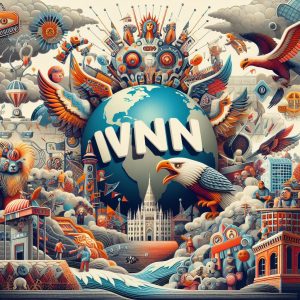
Why Use a VPN for Univision?
A reliable VPN service unlocks multiple benefits when accessing Univision:
Access Univision Content Outside US with IP Cloaking
The primary reason users abroad want a VPN is to get past the geoblock and access all shows, news and sports as if they were in the US. By providing a US based IP address to Univision.com instead of foreign IP, VPN can grant full catalog access regardless of where one is physically located.
Enhanced Privacy & Wi-Fi Security for US Viewers
Further, even users already in US get improved privacy protection and Wi-Fi hotspot security via VPN encrypted tunnel. This prevents ISPs or hackers on public networks from tracking Univision viewing habits or stealing sensitive information.
With VPN protection, Univision viewers in US can enjoy shows from cafes, hotels, airports without worrying about compromised security.
Choosing the Right VPN for Univision
Not all VPN services are created equal. When specifically looking to access Univision from outside the US and enjoy a smooth viewing experience, users should evaluate VPN options using these parameters:
Number of US Locations
The more server locations a VPN has in major US cities, better are the chances of getting consistently high streaming speeds. Check provider has servers on both East and West coasts.
Strong Unblocking Ability
The VPN should demonstrate proven capability to unblock US only apps and sites. So verify if the provider can unblock other similar geo-restricted platforms like Hulu, ABC, Pandora music.
Fast US Speeds for Streaming
Since Univision has high quality video content, VPN speeds need to be sufficiently high – at least 15 Mbps download and upload for interruption free playback.
Secure Protocols
Look for support for secure protocols like OpenVPN and IKEv2/IPSec rather than outdated ones. Also check for encryption strength 256-bit AES is preferred.
Zero Logs Promise
To protect viewing privacy, only use VPNs with clearly stated zero logs policy prohibiting tracking or storing user activity logs.
Reliable Multi-platform Apps
Usability is key. The VPN provider must offer hassle free native apps for Univision streaming platforms like Android phones, iPhone, Windows PCs and Fire TV sticks.
Based on the above VPN selection criteria, these top 4 services emerge as reliable options for accessing Univision:
NordVPN
Offering over 1850 servers in 50+ US cities, robust media streaming unblocking, AES-256 encryption, zero logs, Chrome & Firefox browser extensions, dedicated IP option makes NordVPN the top choice.
ExpressVPN
With 160 VPN server locations in 94 countries, blazing fast US speeds, range of protocols and no activity/connection logs policy, ExpressVPN is ranked highly for video stream performance.
CyberGhost
7900 servers worldwide including over 1350 ultra fast servers in the US, can readily unblock Univision restriction. Optimized servers for video streaming.
PrivateVPN
Smaller VPN but impresses on speeds with 100 Mbps US servers. Exceptional unblocking of US sites like Hulu makes it ideal for accessing Univision abroad with its zero logs assurance.
Setting Up a VPN for Univision
The actual process of setting up and connecting to a VPN service for Univision access is fairly straightforward regardless of chosen provider. We will use NordVPN app for demonstration.
Download & Install VPN App
Visit nordvpn.com to setup account, subscribe and download platform specific app like Android, Windows etc. Both free and paid subscriptions include US servers. Install the app.
Connect to US Server
Launch NordVPN app and click Quick Connect or manually select any US server location like Los Angeles or Miami. Connect to initialize encrypted tunnel.
Check New IP Address
Visit sites like iplocation.net or whatismyipaddress.com to confirm your public IP now shows US location instead of actual country.
Visit Univision Site or App to Stream Content
Now when you access Univision website, mobile app or channel through streaming device, geo-block restriction is lifted thanks to US IP. Enjoy unlimited shows!

FAQs
Can I use a free VPN to watch Univision?
It is technically possible to leverage some free VPNs to access Univision but not recommended owing to several drawbacks:
- Lower speeds – can cause buffering due to bandwidth caps
- Session limits – get abruptly disconnected after short durations
- Numerous ads – hampers viewing experience
- Limited US servers/locations – inconsistent streaming performance
- Weak encryption and unknown privacy policies
- Lack multi-platform clients and router installation support
For best Univision viewing experience, choose premium VPNs like NordVPN, despite paid subscription fees. The benefits outweigh costs.
What content can I watch on Univision?
Univision offers an exhaustive variety of Spanish entertainment, news and sports programs without any subscription fees. With VPN granting US access, you can stream:
- Telenovelas and TV shows popular among Hispanic audience but often not available outside. Great production quality.
- Hundreds of channels across genres like Entertainment, Food, Crime, Sports, Comedy, Classics etc.
- 24/7 News with US and international coverage. Essential updates for those abroad.
- Live Streaming of popular tournaments like Liga MX, Mexican National Team matches etc with expert commentary.
- Latest music videos from Latin pop artists like Camilo, Sebastian Yatra, Enrique Iglesias etc. Transcends language barriers.
The content library on Univision mirrors top channels from Mexico, Colombia and other LatAm countries – fully available for unrestricted bingeing via VPN in stunning video quality and without paying subscription fees.
Conclusion
Univision brings a rich catalog of engaging Spanish programming encompassing genres like music, movies, news, comedy, food and sports content. Until now, expats abroad found Univision’s geo-blocking frustratingly limiting.
With a full featured premium VPN service, audiences globally can unlock endless on-demand entertainment on Univision in addition to enjoying greater privacy and anonymity across internet activity.
Top tier VPN providers boast extensive server presence through the US along with consistently blistering speeds capable of smooth Univision video playback at 1080p resolution without buffering delays. Robust encryption and a firm no logs policy offer users rock solid assurance their Univision viewing habits remain safely anonymous.
Gaining access to Univision using VPNs opens doors to immersing oneself into Hispanic culture through its vibrant music, delicious recipes, emotional soaps and energizing sports – all conveniently streamed free directly from US soil!
I. Introduction
A. Explanation of Rakuten and its cashback promotions
Rakuten, previously known as Ebates, is one of the most popular cashback and coupon websites. It provides its members cashback on purchases made at over 3,500 partner stores. The cashback percentage can range from 1% to 20% depending on the store. Some popular stores that offer high cashback include AliExpress (15%), Walmart (6%), Finish Line (8%), and Macy’s (8%).
Rakuten’s model is simple – users sign up for a free account and access Rakuten through the website or browser extension before making a purchase at a partner store. Rakuten then gets paid an affiliate commission for referring the sale, a percentage of which gets passed on to the user as cashback. The cashback earnings can be redeemed for payments through PayPal or a check. Additionally, Rakuten frequently runs special promo deals and bonuses around the year-end holidays that can help maximize savings.
This makes Rakuten an excellent way to get additional discounts on already discounted deals on VPN services like NordVPN.
B. Overview of NordVPN and its features
NordVPN is one of the most popular virtual private network (VPN) providers in the market. A VPN creates an encrypted tunnel for internet traffic between a user’s device and the VPN server, hiding the user’s IP address and allowing them to bypass geographic internet restrictions.
NordVPN offers over 5400 servers across 59 countries, supports 6 devices simultaneously, provides strong encryption, zero log policy, includes useful cybersecurity features, and is compatible across major platforms – Windows, Mac, iOS, Android, Linux, browsers, and even routers.
Some key features that make NordVPN stand out include:
- NordLynx – NordVPN’s own WireGuard based VPN protocol that provides rapid connection speeds
- Double VPN – routing the connection through two VPN servers for enhanced privacy
- Onion over VPN – anonymous Tor overlay network access over VPN
- CyberSec – blocking ads, trackers, and malicious sites
- Multi-factor authentication – additional verification for account logins
- Split Tunneling – flexibility to customize what traffic goes through the VPN tunnel
300 million users trust NordVPN, making it amongst the top tier of VPN services for individuals and businesses.

II. Using Rakuten for NordVPN Purchase
A. Personal experience of buying NordVPN through Rakuten’s cashback promotion
I signed up for a 3 year NordVPN subscription plan during Rakuten’s site-wide 12% cashback promo last October. The deal was offering a huge 70% off on the 3-year plan, bringing down the effective price to less than $3 per month.
Using Rakuten gave me the option of getting the already excellent promo price at NordVPN further lowered by 12% cashback.
The purchase process was very smooth. I simply:
- Accessed the Rakuten website and made sure I was logged into my account
- Clicked on the Shop Now button for NordVPN and was redirected to the nordvpn.com website
- Selected the 3 year subscription plan for $125.64 (already 70% off thanks to NordVPN’s promo) which was listed with 12% Cash Back from Rakuten
- Completed the purchase process on NordVPN
- Received a confirmation email from both NordVPN and Rakuten for the order and cashback earnings.
Within two days, Rakuten added the 12% cashback amount of $15.08 to my Rakuten account. I could immediately use it to shop again and save more or request a payout.
Getting quality VPN protection for my devices at such a low three year cost and getting $15 back was an absolute win.
B. Benefits of using Rakuten for purchasing NordVPN
There are significant savings to be unlocked when using Rakuten to buy discounted services like NordVPN. Some benefits include:
1. Maximize savings on already discounted deals: Services like NordVPN run some excellent promotional discount offers around the year that cuts costs by 50% to 70%. Using Rakuten provides users the ability to maximize savings by stacking store discounts with Rakuten cashback.
2. Instant and reliable cashback: Rakuten has a perfect track record of crediting confirmed cashback earnings to accounts within days of eligible purchases. There is no worrying about cashback validity or having to follow-up on missing payments.
3. Wide range of stores: Rakuten offers reliable cashback at over 2,500 stores spanning all categories – from popular retailers to insurance, travel bookings, rideshares, and more. NordVPN is one of the several digital services supported. Members can rely on Rakuten for most household purchases.
4. Prompt and on-time payouts: Unlike some cashback sites that impose extremely difficult payout requirements, Rakuten conveniently processes payment requests within 7-10 business days. Payouts can be received via Paypal or Check.
5. Generous signup bonuses: Rakuten provides new member bonuses up to $40 for signing up and making an initial qualifying purchase within limited time periods.
Rakuten takes cashback shopping convenience and reliability to the highest level. For purchases like recurring and discounted services such as NordVPN, the additional cash savings are truly the cherry on top.
III. NordVPN Features
A. High-quality VPN offering safety, speed, and multiple connection options
NordVPN rightfully claims its place among the top tier VPN services by offering users a virtual private network that provides exceptional online privacy, secures connections on public Wi-Fi, unblocks geo-restricted content, delivers blazing fast speeds, and offers maximum configurability for advanced users:
Safety
With internet privacy concerns and cybercrime at an all time high, NordVPN’s military grade encryption, zero log promise, DNS and IPv6 leak protection, and secure protocols give users the assurance that their sensitive browsing data is protected from prying hackers and cybercriminals.
Speed
NordVPN owns one of the largest VPN server networks globally across 59 countries. Such extensive infrastructure helps it reliably achieve faster than average VPN speeds for all use cases – streaming, large downloads, gaming, voice/video calls etc. The company has also invested in developing NordLynx – their own custom VPN protocol based on WireGuard that provides a much smoother, low latency user experience.
Multiple Connection Options
Whether accessing NordVPN on mobile devices, laptops, or configure it once at the router level for all home devices – Nord supports remarkable 6 simultaneous connections as part of a single subscription. Such generous allowance and cross platform flexibility makes NordVPN a convenient choice for securing small home networks or teams.
B. Comparison with other VPN providers like PureVPN and ExpressVPN
The global virtual private network industry has expanded tremendously over the past few years with several providers vying for consumer and business users through an aggressive mix of pricing, features, performance claims, flashy marketing and brand building exercises. Companies try to differentiate themselves in areas like number of server locations, connection speeds, security mechanisms and bundled features.
In such a crowded market, NordVPN stands tall as one of the top three recommendations from experts and leading tech advisory websites like CNET, PCMag and Tom’s Guide. When comparing NordVPN with two other capable contenders – PureVPN and ExpressVPN, it becomes evident how NordVPN manages to score over them across various evaluation parameters.
Speed: All three providers generally offer good enough speeds for smooth streaming, downloads and browsing. But NordVPN’s large server fleet and custom VPN protocol gives it a slight edge in speed tests. Independent third party evaluations conducted by sites like speedtest.net have measured Nord delivering lower latency and lag.
Pricing: NordVPN has very competitive subscription plans across monthly, 1 year and longer 2-3 year durations. PureVPN tends to nudge ahead at the 1 year plan level in terms of absolute dollar savings, but lags behind Nord on the multi-year plans. ExpressVPN trails on pricing at all plan levels.
Security & Privacy: All three services provide standard security with AES-256 bit encryption and support major protocols like OpenVPN, IKEv2 etc. And all claim zero logs. NordVPN however goes beyond the usual with additional verification option, dedicated IP, TOR over VPN capability and cybersecurity oriented features via CyberSec. Thereby giving it a slight privacy advantage.
Server locations: With servers in 59 countries, Nord matched PureVPN’s server count and access. ExpressVPN leads this segment with impressive presence in 94 countries. However, NordVPN’s servers are sufficiently spread globally across North America, Europe and critical Asian countries like India.
On aggregate, NordVPN balances an unmatched mix of speed, pricing, security and global presence. Making it objectively better than PureVPN and ExpressVPN as the go to personal and business VPN solution.
C. Details of NordVPN’s proprietary NordLynx protocol and its benefits for Viber users
One of the standout infrastructure developments from NordVPN in recent years has been the introduction of NordLynx. It is NordVPN’s own custom VPN protocol that uses the highly efficient WireGuard protocol as the base instead of standard protocols like OpenVPN or IPSec:
How it works
NordLynx leverages state of the art cryptography and latest VPN tunnel technology to create a much leaner, faster and more nimble connection between the users’ device and NordVPN server:
- Uses ChaCha20 and X25519 for encryption and authentication versus older algorithms
- Reduces handshake and rekeying steps drastically
- Lowers packet overhead to bare minimum by removing unnecessary elements
- Seamlessly falls back to TLS 1.3 encryption protocol when required
Benefits
Naturally, the leanness and efficiency designed into NordLynx provides NordVPN users several advantages:
- Faster connection establishment with almost no perceivable lag
- Quick recovery from intermittent connectivity loss because of swift reconnections
- Greatly reduced battery drain and packet loss on mobile devices
- Higher sustained speeds for downloading and streaming media
- Smoother performance for gamers, traders and applications needing real-time responsiveness
Specific advantages for Viber users
Viber users making calls over NordLynx enabled NordVPN servers see call quality getting a strong boost thanks to:
- Viber’s media quality detection algorithm senses the higher available bandwidth over NordLynx. So it automatically bumps up call resolution and bitrate in response.
- With reduced latency, chances and duration of garbled sections, frozen video or out of sync audio drops drastically
- Background processes and apps updating themselves rarely interfere with active Viber call thanks to abundant headroom for bandwidth.
Therefore, Viber users struggling with glitchy calls over VPN get an instant benefit by having NordVPN establish their secure connections using NordLynx protocol. Calls become far smoother.

IV. Comparison with Other VPN Providers
A. Comparison of NordVPN with PureVPN in terms of pricing, speed, server locations, security, privacy, and unblocking capabilities
NordVPN and PureVPN are two of the leading and widely used commercial VPN services. Both provide the usual gamut of VPN features – encryption, multiple protocols, network protection etc. But they differ in various aspects:
Pricing
In terms of subscription costs across monthly, 1 year and longer duration plans, PureVPN has generally lower rates. The gap between the two closes at 3 year subscription levels. But PureVPN still manages to undercut NordVPN with occasional promo discounts. However, PureVPN only permits a maximum 5 simultaneous connections on one account versus Nord’s higher 6 device limit.
Speed
On average speed performance for downloads, streaming etc – third party speed tests and analysis have found both PureVPN and NordVPN to offer good, usable speeds. In certain regions PureVPN does better. But NordVPN’s large server fleet and the acceleration boost from its proprietary NordLynx protocol gives it an edge overall.
Server Locations
NordVPN and PureVPN have impressive and identical presence in 59 countries currently. Covering all major regions – Americas, Europe, key Asian hubs etc. Allowing users to effectively bypass geo-blocks and access region restricted websites like Netflix, Hulu, BBC iPlayer.
Security & Privacy
Both utilize standard AES 256 bit encryption and provide users a selection of protocols like OpenVPN, IKEv2 etc. To further strengthen privacy, NordVPN offers additional hardening via dedicated IPs, kill switch, split tunneling, TOR over VPN access and also has independent audit confirming its strict no logs claim. Giving NordVPN a slight boost in security and anonymity.
Unblocking/Censorship circumvention
A common expectation from VPN users is having the ability to access internet sites and apps blocked in their country or region. Both PureVPN and NordVPN capably bypass typical geo-restrictions on entertainment sites like Netflix US, Amazon Prime Video, Hulu Japan library etc. And also successfully work in censorship heavy countries like China and Russia to some extent. Once again Nord squeezes ahead owing to its obfuscated servers that better mask VPN traffic.
In summary, NordVPN matches or narrowly overtakes PureVPN on most parameters due to larger infrastructure investments and focus on optimizing speed and privacy. Making it a slightly better choice overall.
B. Brief overview of IPVanish and ExpressVPN for context
IPVanish
Owned by Mudhook Media, IPVanish is a decent VPN option for novices and experts alike. It checks all the boxes in terms of multi-platform clients, encryption, unlimited bandwidth, anonymous registration and permits simultaneous connections up to 10 devices.
Where IPVanish trails leaders like NordVPN is on size of server network (1500+ servers in 75 locations) resulting in occasional speed inconsistency, extent of country streaming library unblocking capability and lack of niche privacy features like TOR over VPN.
It tries to compensate through competitive pricing with steep 1 year plan discounts and bundling VPN along with encrypted backup and password management tools.
ExpressVPN
If there was an award for most prolific advertiser in the VPN space – ExpressVPN would win hands down! This British Virgin Islands headquartered company has managed to create top of the mind recall through aggressive social media campaigns, content marketing and search ads targeting shoppers actively comparing VPN providers.
And unlike most over hyped products that fail to impress – ExpressVPN largely lives up to expectations. It delivers well rounded performance across speed, reliability, apps and generous 30 day money back guarantee. The speeds are blazing fast thanks to wide network of 3000+ global servers. Media streaming site unblocking works flawlessly including niche ones like BBC iPlayer.
Where Express falters is on pricing with no multi-year discount plans available unlike NordVPN, PureVPN etc. Also has occasional issues in highly restrictive networks like China. But with best in class customer support over live chat, ExpressVPN remains top recommendation from many experts as a reliable premium VPN pick.

V. Conclusion
A. Summary of the benefits of using Rakuten for NordVPN purchase
Using cashback shopping portal Rakuten provides buyers multiple advantages when purchasing quality virtual private network access from leading provider NordVPN:
- Stack store discounts with Rakuten cashback for maximizing savings
- Realize additional cashback between 4% to 15% back reliably
- Receive earnings payments conveniently via Paypal or Check
- Avail generous signup bonuses in cashback value
Overall, the cashback from portals like Rakuten make useful add-on rebates for necessary expenses like NordVPN subscriptions – helping recoup part of the paid price.
B. Recap of NordVPN’s features and advantages
NordVPN rightfully deserves to be counted among the very top tier VPN services worldwide owing to an unmatched combination of strengths:
- Owns one of the largest fleets with over 5400 VPN servers spread across 59 countries
- Proprietary NordLynx VPN protocol offers rapid speeds for smoother gaming, downloads and video calls
- Strong AES 256 encryption with added hardening possible via Double VPN, Onion network
- Great unblocking capability for geo-restricted sites like Hulu, BBC iPlayer, Disney+ Hotstar
- CybserSec feature blocks ads, trackers and malicious websites for safer browsing
- Supports 6 devices simultaneously with apps available for all major platforms
With deep investments in privacy enhancing infrastructure and focus on network acceleration – NordVPN provides the dependable security and speed combo desired by most VPN subscribers.
C. Final thoughts on the suitability of NordVPN for different user preferences
NordVPN’s versatile set of features make it suitable for a wide spectrum of use cases. Users wanting:
- Privacy first will appreciate NordVPN’s independently audited no logs claims, offshore jurisdiction, dedicated IPs and TOR over VPN support
- Unblocking ability can reliably bypass common geo-blocks on entertainment sites and some state level censorship too
- Performance focus will see benefits from widespread server locations, fast NordLynx protocol and CyberSec ad blocking
- Affordability will find NordVPN’s longer 2-3 year plans competitive and chance to save even more by purchasing through cashback portal
- Simplicity will like easy one-click connect clients for Windows, iOS, Chrome & Firefox with 24/7 live chat support
While every VPN provider caters well to some niches, NordVPN’s balanced capabilities for speed, privacy, unblocking, multi-platform support and competitive pricing puts it on the shortlist for consideration across user segments. Easily recommended as an “all rounder VPN”.


























